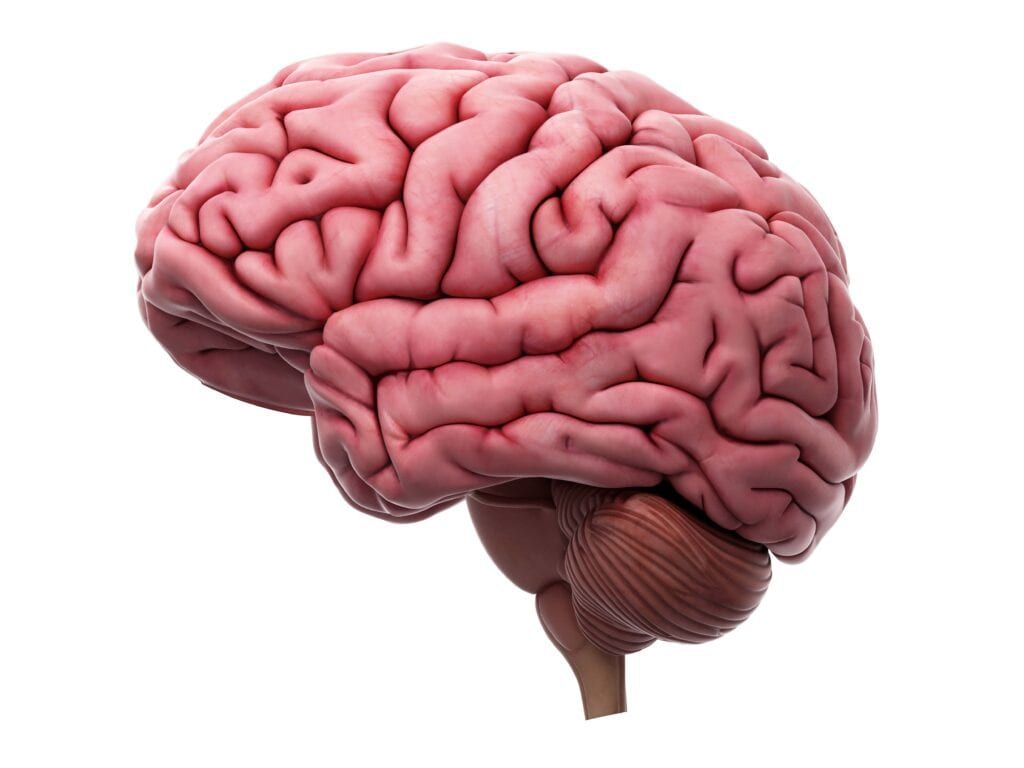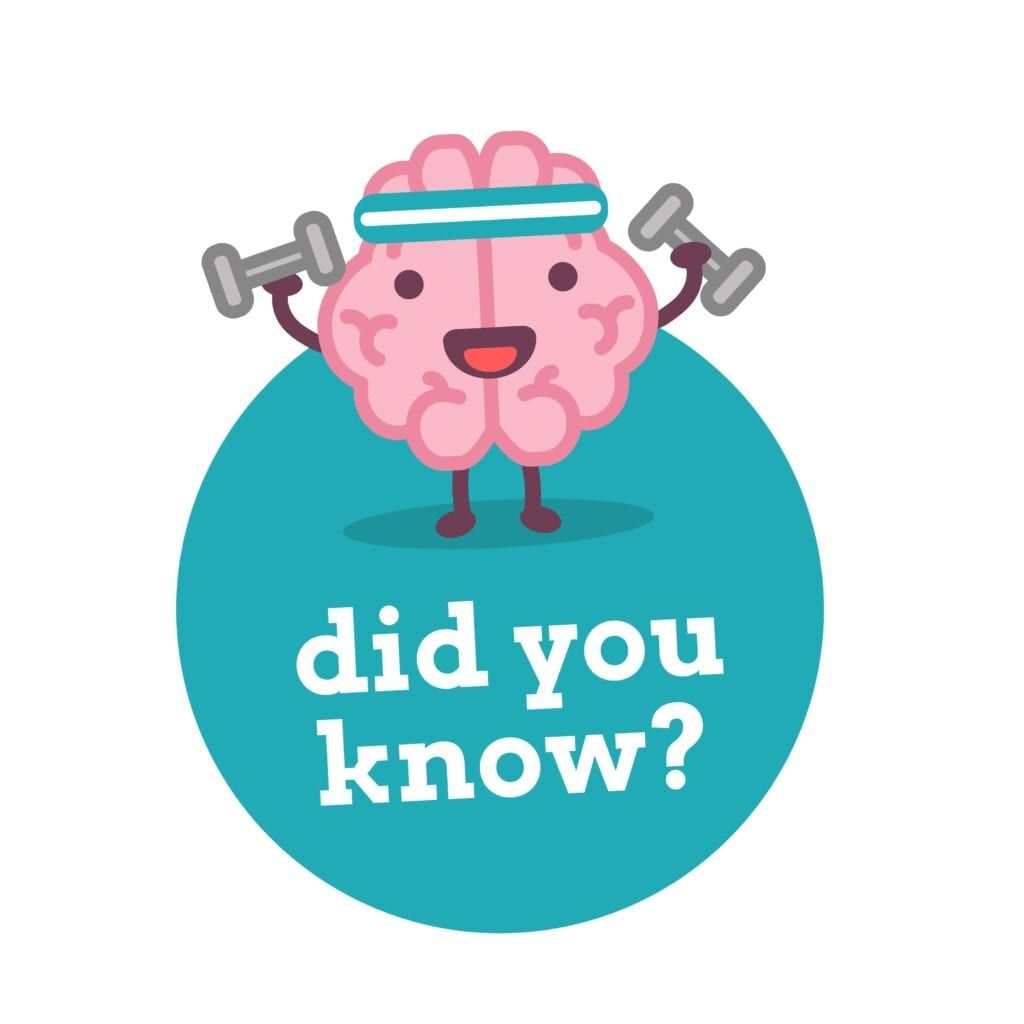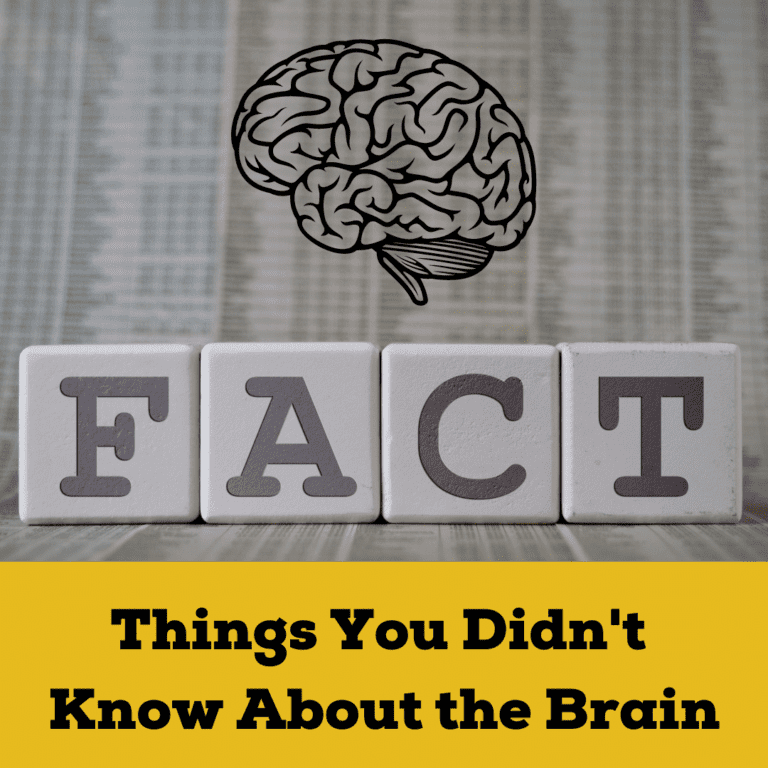The brain is the most fascinating organ in the human body. There is still so much about it that is not completely understood. Even so, there are also a number of things that you may not even know about your own brain. Here are some of the most interesting things that you probably don’t know about your brain:
The average adult brain weighs about 3 lbs, while a newborn’s brain is about a quarter of this size. Within the first year of life, the brain will grow about three times its size and will continue to slowly grow up until around the age of 18. However, complete brain development does not finish until the age of 25. Sometime after hitting middle age, the brain will then gradually get smaller with age. In fact, by the late 20s the brain begins to lose some memory abilities and cognitive skills. After the age of 40, the brain shrinks about 1-2% every year.

As we age, certain brain functions decline, while others may improve. Functions such as short-term memory, processing speed, attention, the ability to multitask, and visuospatial functions tend to decline with age, while language functions tend to stay about the same. Additionally arithmetic skills tend to peak around age 50, while cumulative intelligence peaks around the early 70s.
The average brain is made up of 75% water and uses about 20% of the blood and oxygen in your body. To put that into perspective, your brain requires three times as much oxygen as your muscles. Overall, your brain requires 25% of all the energy needed to run your body daily. In children brain development happens faster and requires about 50% of their energy. The brain requires so much energy because even while you are resting, your brain is constantly working.
The brain also contains approximately one hundred billion neurons. Although neurons can die over time, it is estimated that about 700,000 new neurons are produced daily in the hippocampus. These neurons transmit information for everything you see, hear, think, or do. Neurons can transmit information at different speeds with the fastest averaging about 250 mph. They can also produce enough electricity to power a 25 watt lightbulb.
Despite the fact that the brain interprets pain signals from all over the body, it cannot actually feel pain itself. The pain that most people experience from headaches is actually pain in the meninges, or brain covering, caused by chemical reactions in the brain combined with the muscles and nerves in the neck and head. Another common phenomenon, known as brain freeze, is actually caused by the constriction of blood vessels and arteries in the back of the throat that supply blood flow to the brain. Eating or drinking something cold causes these blood vessels and arteries to constrict and then open when they’re warm again. The result is pain in the forehead.
The brain has a texture similar to that of soft tofu. This is because it is a fatty organ whose structure is largely composed of fat. In fact, about 25% of the body’s cholesterol is found in the brain. Healthy fats, such as omega-3s and omega-6s help to promote brain health and preserve the structure of brain cells.
Brain size does not correlate with intelligence. Instead, it is the wrinkles within our brain that allow our brains to process more information. The human brain contains deep wrinkles, small grooves called sulci, and larger ridges called gyri. Intelligent animals, like chimpanzees and dolphins, have also been found to have wrinkles on their brain, while other animals, such as mice, have smooth brains.
Small amounts of information being held in an active mind generally only last about 20-30 seconds. This is why you can get distracted and forget what you were going to say. Additionally, most people can only remember numbers for about 7 seconds and letters for about 9 seconds before forgetting them.
Sleep is important for your brain. Without about 7-9 hours of sleep for your brain to recharge, your brain function becomes impaired causing memory problems, poor judgement, and slow reaction times. Extended periods of sleep deprivation can even cause brain cell death and lead to psychosis. It has also been found that sleep deprivation raises brain temperature and that yawning is the brain’s way of cooling itself.

Socialization is also important for your brain. In adolescence, socialization is an important part of the teenage brain learning empathy. Research also shows that meaningful social activities can maintain or increase brain functionality. One study even found that socializing in your 60s can decrease the risk of dementia by 12%.
Your eyes are actually an extension of your brain and are directly attached to the brain. However, the part of the brain responsible for processing visual information is actually found in the rear of the brain. This region is known as the occipital lobe. The right side of your occipital lobe controls vision on the left side and the left side of your occipital lobe controls the vision on the right side.
The human brain has the largest frontal lobe compared to other animals. The frontal lobe is associated with the things that set humanity apart from the animal kingdom such as self-control, planning, logic, and abstract thinking.
There are two common myths about the brain that are incorrect. The first is that we only use 10% of our brain, when in actuality the entire brain is being used at any given time, even when we are sleeping. The second myth about the brain is that people can be right or left brained. In actuality, everyone uses both their left and right sides of the brain all the time. It has been suggested that social norms and learned behaviors actually determine whether a person thinks of themselves as being “left or right brained”.

Dr. Kashouty, a diplomate of the American Board of Psychiatry and Neurology (ABPN), practices general neurology with fellowship trained specialization in clinical neurophysiology. Dr. Kashouty finds the form and function of the nerves and muscles the most interesting part of neurology, which is what led him to specialize in neurophysiology with more emphasis on neuromuscular conditions. He treats all neurological diseases, but his main focus is to treat and manage headaches, movement disorders and neuromuscular diseases.




